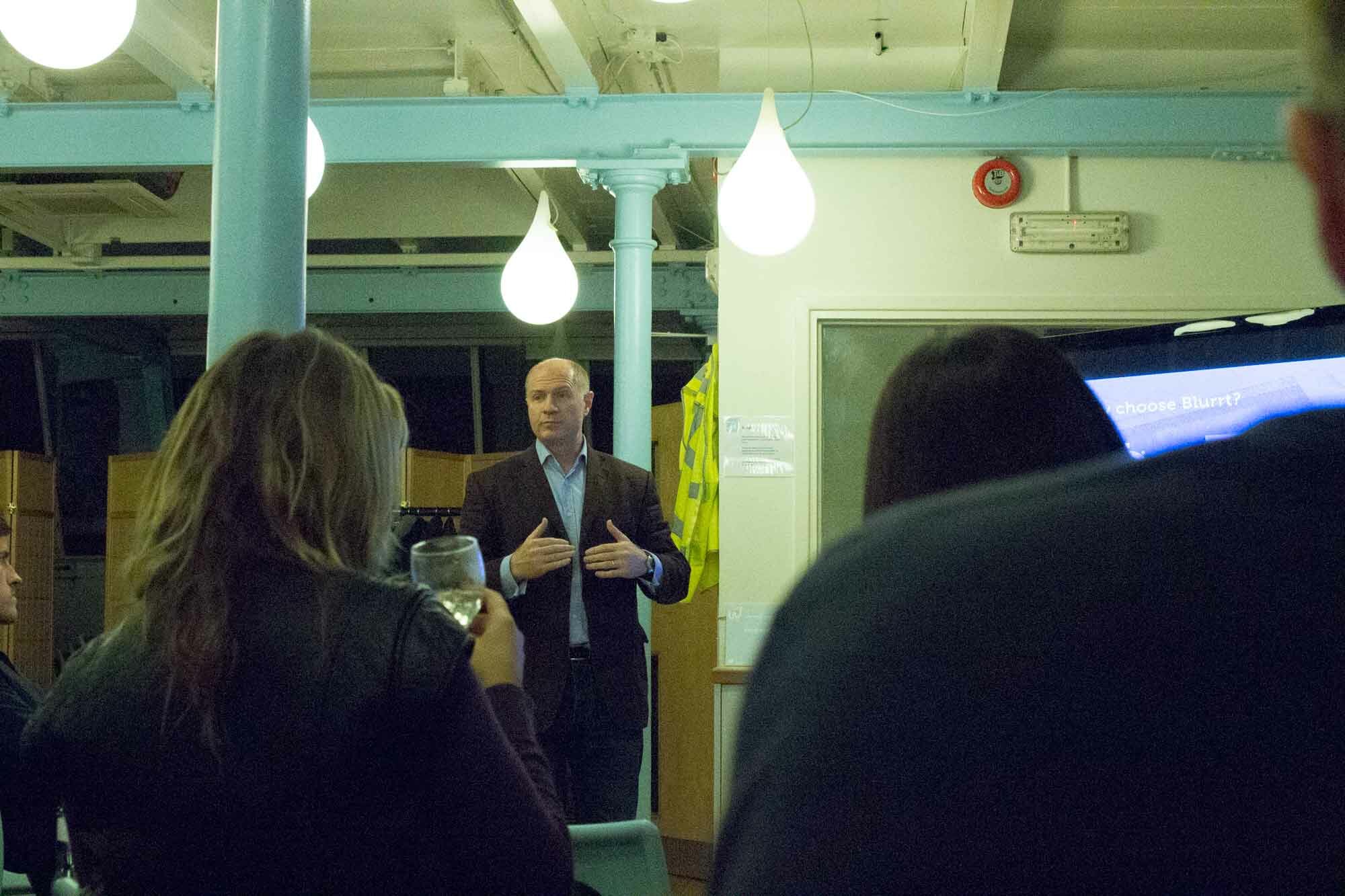Interview: Jason Smith, CEO of Blurrt

by Nicholas Fearn , February 24
Jason Smith is the CEO of Blurrt, a Cwmbran-based social media analytics platform. We speak to him about his business, how it’s benefiting customers, and Wales’s growing tech sector.
TD: Can you tell us more about yourself and what you do, please?
JS: I’m co-founder and CEO of Blurrt. I do the best I can to lead a team of talented people and try and keep the business moving forward.
TD: What makes your business unique?
JS: On one level, our business isn’t unique, as there are a few companies collecting and analysing social data. I guess what makes us different is our focus on doing complicated analytics of social data in real time.
We were the first to broadcast live Twitter reaction to a political debate in the UK. We also focus on making the products as easy to use as possible, thereby reducing barriers to use and allowing clients to actually do something with the data.
TD: How does it benefit customers?
JS: For our broadcast media clients, our products allow them to surface and showcase interesting audience generated content in real time, whether on-screen during a show or online. We make it easy for them to not only find what they’re looking for among thousands of social posts but also display this content.
For our brand clients, our product allows them to get instant reactions to TV adverts, social campaigns and insights into their customers. They also use the platform for intelligence on competitors.
TD: Why did you set it up, and how far have you come?
JS: My co-founder, Nick Miller, who runs a market research agency, had the idea in 2012 to capture thousands of opinions/views expressed by people freely on Twitter as a replacement or supplement to traditional market research.
Since then, we now have a platform that collects data from a number of social networks (not just Twitter); have demonstrated expertise in real time analytics in live broadcast environments; won a TechCity award for best tech company in Wales; and are about to complete on a £500k investment round via crowdfunding site Seedrs with just over 200 investors.
TD: What’s been your biggest success and your biggest obstacle?
JS: I’m never happy and the team are not one for resting on laurels. Getting the investment and awards are good but there’s a lot more we went to achieve.
Obstacles are always money and skilled staff. Right now, we have a desperate need for a senior developer, which is holding us back.
TD: What do you think of the Welsh tech scene?
JS: In recent years, there have been a number of real promising start-ups. I think the big issue facing the Welsh tech scene will be our ability to turn these start-ups into fast growing scale-ups who have a presence in international markets.
TD: How is your business contributing to it?
JS: We’re trying to be one of those fast growing scale-ups. Hopefully, winning national awards like those from TechCity and the Seedrs investment round can help put the Welsh tech scene on the map.
I’m also proud that we’ve taken graduates from Welsh universities and trained those within the business. We’ve also been involved in a pilot project lead by ESTnet to place Cardiff University computer science undergraduates within businesses for their year in industry. This is something I’d like to continue.
TD: Where do you see yourself in five and ten years?
JS: Within the next 5 years, we want to be seen as the leader in the UK for what’s known as social TV. If we’re to achieve our ambitions then the big market that we must tackle is the US. We’re also looking to explore other discrete markets.
We need to provide a return to our investors, so within 10 years the business is very likely have been acquired.
TD: What advice would you give to someone looking to set up a tech start-up?
JS: You have to be quick, so build a minimal viable product and get it in front of customers as soon as possible. If the reaction is positive you’ll build users and sales revenue which will help with raising investment to grow. Customers will also give you valuable feedback for product development. If the reaction is negative, then either pivot quickly (if you can) or drop it and move on.